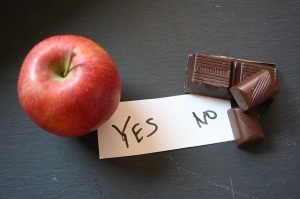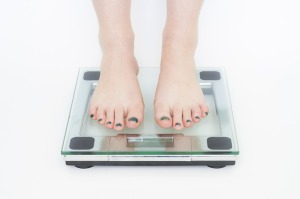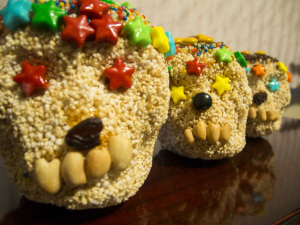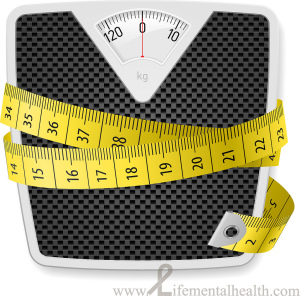
You eat less than your skinny friend but still put on weight – can that be true?
It is true that our metabolism – the rate at which we process the food we eat – varies from person to person.
What is not clear is why two people can appear to eat virtually the same amount of food, which causes one to be thin and the other to pile on the pounds.
We uncover some home truths…
Many of us have friends who seemingly can eat anything they want and never put on weight. Whereas there are some of us who can just look at a slice of cake and we can feel our waistline getting bigger by the second. Whilst metabolism may have some effect, the answer is not as simple as we may think.
The Test
In this test, two friends – Cindy and Michelle – were the volunteers. They both have very different shaped bodies. Cindy was very slim while Michelle was nearly 15kg over her desired weight.
They both thought that the amount that you ate was really down to your metabolic rate.
Over the course of ten days, both Cindy and Michelle were watched closely and also asked to record how much food they ate in their food diaries.
However, it wasn’t left entirely to chance, or the honesty of the two ladies! At the beginning of the test they were each given half a litre of doubly labelled water. This is water in which both the hydrogen and the oxygen have been partly replaced with an uncommon isotope of these elements, in this case a non-radioactive form of deuterium and oxygen 18.
By doing this, it was possible to see exactly how many calories each of the girls were consuming, as well as the energy they were using just by moving around, by examining a urine sample each day.
It won’t be too much of a surprise that by the end of the week, the urine samples didn’t match the food diaries! The urine samples showed that although they did much the same amount of activity, Cindy actually ate 50% less each day than Michelle did.
Here is a simple but stark fact, and it may fly in the face of a lot of things that you understand, the fact is that the larger you are, the higher amount of energy your body will use, even at rest.
This means that your metabolic rate is higher as well. If you think about it, this is obvious, because even though you are at complete rest, larger people need more energy to pump the blood around the body and keep moving. You could use the analogy of a big car, having a big engine, so it uses more fuel to move itself around. In the same way, a bigger person uses more energy to move themselves around.
So the next time you’re tempted to blame your metabolism for your weight, remember, here’s the simple stark truth.
Some people eat less.
The other thing that should be pointed out is that whilst our two friends thought they both ate about the same, remember, Cindy ate 50% less than Michelle, and no-one was more surprised about that than her!
Now it is possible to make your metabolism work faster. One of the simplest ways of doing that is by exercising to the point where you start to be out of breath.
Once your body gets the message that it needs to ‘up’ the energy level – it will continue to do so even when the exercise has stopped.
That means you’ll be using up more calories even when you’re sleeping.
 While a number of factors can contribute to belly fat — including stress and poor sleep — carbs may play a role, depending on your diet. “Carbohydrates are the main source of energy for the body, broken down and utilized as glucose by our cells,” Gabby Geerts, a registered dietitian at Green Chef said. “If you consume more carbs than necessary, your body will convert glucose to glycogen, a storage form of energy. If you consume so many carbs that even your glycogen stores are at maximum capacity, the body will then convert this to fat.”
While a number of factors can contribute to belly fat — including stress and poor sleep — carbs may play a role, depending on your diet. “Carbohydrates are the main source of energy for the body, broken down and utilized as glucose by our cells,” Gabby Geerts, a registered dietitian at Green Chef said. “If you consume more carbs than necessary, your body will convert glucose to glycogen, a storage form of energy. If you consume so many carbs that even your glycogen stores are at maximum capacity, the body will then convert this to fat.”









